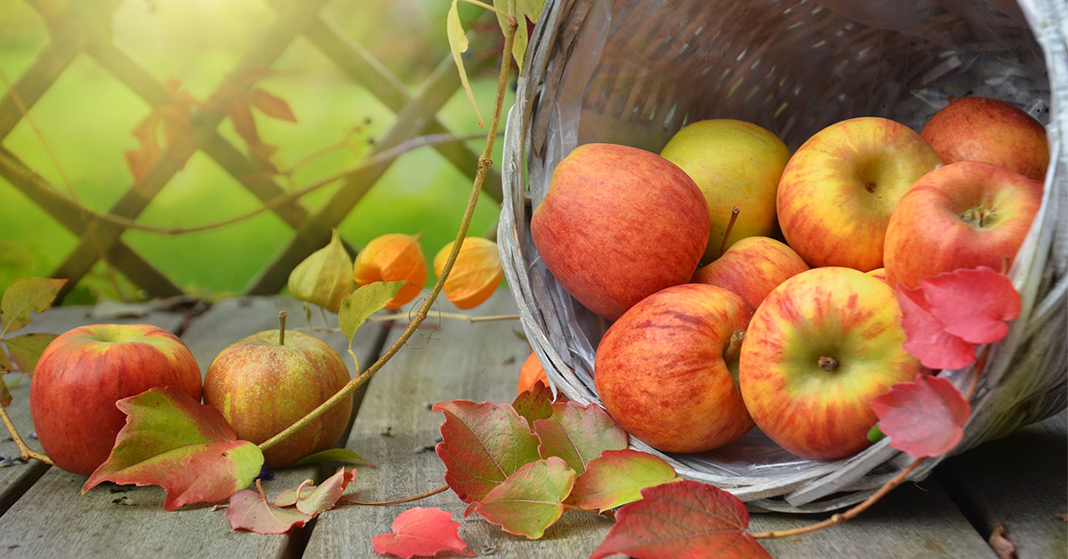
We think of autumn as the season of harvest. Even with the conveniences of grocery stores and restaurants, we all look forward to the cooler weather that brings fresh apples, blackberries, sweet potatoes, squash, and pumpkins to the produce aisle. For all the difficulties that a life on a farm involves, it must be rewarding to gather in the harvest. Imagine finally seeing the results of all the effort you’ve put into planting and maintaining the fields for those long months!
Tending to Your Family
Don’t we sometimes think about homeschooling and parenting the same way—wishing that the family were like a garden plot so that our diligent work throughout spring and summer would yield the satisfaction of tangible results by autumn? But tending a family is a year-round occupation. Homeschooling never ends—not even when the yellow school buses make their rounds at the end of the school day. We may hand out final grades to our children as the school year closes, but rarely do we get to see a final assessment or “harvest” of our work—there’s no concrete evaluation of our overall success level.
Instead, our harvest comes in bits and pieces as our children grow. When a daughter finally understands multiplication, when a son learns to ride his bike without training wheels, when brothers and sisters help each other and unselfishly share their toys (OK, so maybe we’re still working on that one!)—these are the things that show us that the time and effort and prayer we have put into our children’s lives are bearing fruit.
The difficulty comes when not all the plants in our home garden flourish. With some of our children, we can’t help but wonder whether we will ever see a harvest ripened and ready in their lives. “Where did I go wrong?” we wonder. “Did I use the wrong seed? Overwater? Hurt the roots when trying to pull the weeds?” Sometimes we plant, tend, and do everything we can think of, but instead of the fruit of the Spirit, we see only self-centeredness, pride, and rebellion. What can we do when the seeds we’ve tried so hard to cultivate seem to lie dormant or dead in the soil—when instead of producing godly fruit, a child prefers to sow “wild oats,” heedless of the harvest they will yield?
As much as we would like it to be, Proverbs 22:6 is not an ironclad promise—a guarantee that if we hold up our end of the bargain, God will make sure our children turn out all right. Instead it is an exhortation, wisdom we will never go wrong in following. “Train up a child. . . .” Plant, plow, tend, weed, water. Do everything we can to help these plants grow and flourish. And then? Step back in prayer and watch the Lord give the increase (1 Corinthians 3:7).
Waiting for the Harvest
Of course, stepping back to watch is never easy. But the farmer can’t be constantly digging around the roots of his wheat to see whether it is growing right. He can’t pull back the husks from every ear of corn to see whether the kernals are forming properly. No, the farmer has to wait and trust that the God who grew the Garden of Eden is also watching over his fields. And we have to watch our children make decisions for themselves daily. We can and should guide, sometimes even override, those decisions while the children are young, but there comes a point when they must answer for their own actions.
Search your own heart. Are you are walking with God as He requires? That’s all you can control. Don’t carry the weight of guilt for their actions when God doesn’t ask you to bear it. We all make mistakes. We sin. He knows—He died to save us from sin. And He also chose each one of us specifically to parent our specific children. Even when hopes, goals, personalities, and tastes seem to clash horribly between parent and child, God has a good purpose in store.
One of the dictionary definitions of harvest is “a supply of anything gathered at maturity and stowed.” None of us has reached full maturity yet. Do you feel ready to stand before God today, or would you like time to grow more? The same is true of our children, whether they appear to be flourishing, yielding a bumper crop of the good things we hope to see, or they are simply alive, tenaciously clinging to the dirt. We must give them—give ourselves—time to grow.
Trusting the Lord of the Harvest
The harvest we wait for may take much longer to ripen than autumn’s golden pumpkins. It’s possible that we won’t even get to see or share in the fruit of our love-labors. But that’s all the more reason to trust the Lord of the Harvest. He knows each unrolling leaf and bud, each bug and blight, and every different season that will be a part of our children’s growth. We may sow the seeds, but it’s God who gives the rain, sun, and life. Don’t give up hope in times of drought. Don’t uproot the browning stems even when plants appear dead—you don’t know what life still flows despite the brown leaves.
Trust the Lord of the Harvest. And in your trusting, give thanks that He has the greatest stake in the harvest for which you’re both waiting. Hasn’t He even given His Son to bring it in? Give thanks that He knows the outcome and that whatever the harvest yields, God is still and always will be good. And He delights in helping His children—of every age—to flourish “like a tree planted by the rivers of water, that bringeth forth his fruit in his season” (Psalm 1:3).
